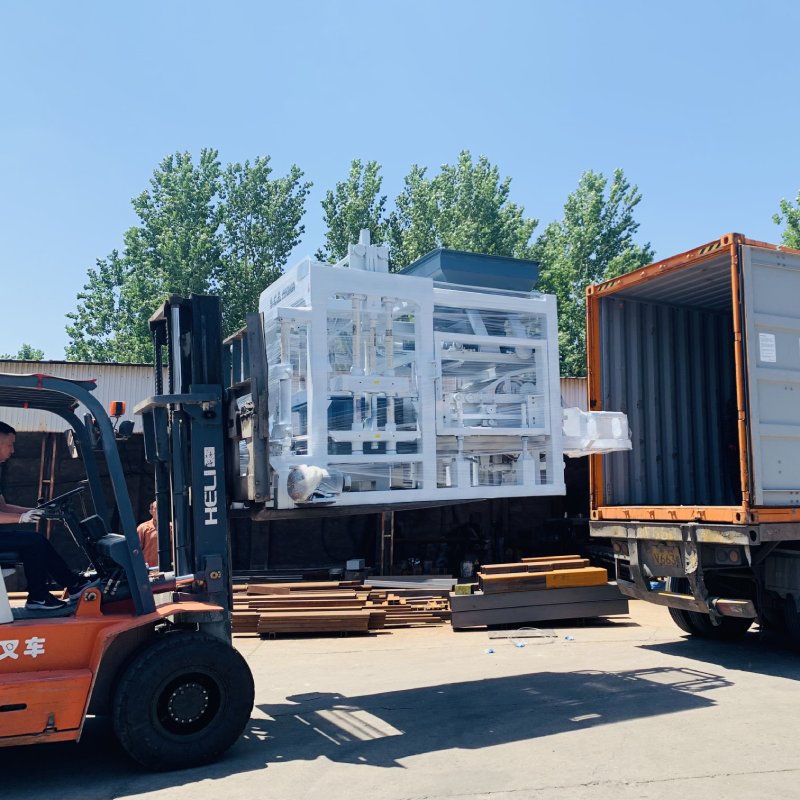
Image source Aiwei Block Machine
Smart Block Machines Transforming the Construction Industry
Introduction
The construction industry has always been at the forefront of innovation, constantly seeking ways to improve efficiency, productivity, and sustainability. In recent years, the emergence of smart block machines has revolutionized the construction sector. These cutting-edge machines leverage advanced technologies such as the Internet of Things (IoT), artificial intelligence (AI), and automation to transform the block-making process. This article explores the role of smart block machines in the construction industry, their impact on productivity, safety, and sustainability, and their potential to shape the future of construction.
- The Evolution of Block-Making Technology
Traditional block-making methods have evolved from manual labor-intensive processes to semi-automated and fully automated systems. While these developments brought significant improvements, they still had limitations in terms of precision, productivity, and data management. The advent of smart block machines takes block-making technology to new heights, offering seamless integration of digital technologies for enhanced performance.
- The Core Features of Smart Block Machines
Smart block machines incorporate an array of digital features that enable real-time data collection, analysis, and optimization of block production. These features include sensors for monitoring temperature, pressure, and moisture, AI-driven algorithms for predictive maintenance, and IoT connectivity for remote monitoring and control.
- Real-Time Data Collection and Analysis
Smart block machines are equipped with sensors that collect data during the block-making process. These sensors capture critical parameters such as raw material quality, compaction pressure, and curing conditions. The data is then analyzed in real-time to identify trends, inefficiencies, and potential issues, allowing for proactive decision-making.
- Predictive Maintenance and Reduced Downtime
AI-driven algorithms in smart block machines can predict maintenance needs based on data analysis. By identifying potential equipment failures in advance, smart block machines help reduce downtime, improve machine reliability, and extend the lifespan of critical components.
- Automation and Efficiency
Automation is a hallmark of smart block machines. Robotic arms and conveyors streamline the block-making process, reducing manual labor requirements and increasing production efficiency. Automated stacking and packaging systems further optimize the post-production workflow.
- Remote Monitoring and Control
IoT connectivity enables remote monitoring and control of smart block machines. Construction managers can access real-time production data, adjust machine settings, and receive alerts through mobile devices, improving operational oversight and decision-making, even from a distance.
- Enhanced Quality Control
Smart block machines incorporate sophisticated quality control mechanisms to ensure consistent block quality. Automated systems monitor and regulate compaction pressure, curing conditions, and block dimensions, resulting in uniform and reliable products.
- Improving Workplace Safety
The automation and remote capabilities of smart block machines contribute to improved workplace safety. By minimizing the need for manual intervention in hazardous processes, these machines reduce the risk of accidents and injuries on construction sites.
- Smart Block Machines and Sustainable Construction
Sustainability is a growing concern in the construction industry, and smart block machines play a pivotal role in promoting eco-friendly practices. With real-time data monitoring, these machines optimize raw material usage, minimize waste, and reduce energy consumption, aligning with green building standards.
- Challenges and Adoption Strategies
While the potential of smart block machines is evident, their adoption presents certain challenges. Initial costs, integration with existing processes, and the need for skilled labor to manage the technology are among the hurdles. To overcome these challenges, construction companies must invest in training and upskilling their workforce, collaborate with technology providers, and develop long-term implementation strategies.
- The Future of Smart Block Machines
The future of smart block machines is promising, with ongoing advancements in technology and increased focus on sustainable construction. As AI, IoT, and automation continue to evolve, smart block machines will become even more sophisticated, offering improved efficiency, data analytics, and integration with other construction technologies.
Conclusion
Smart block machines represent a transformational leap in the construction industry, redefining the way blocks are manufactured. By integrating digital technologies, these machines enable real-time data analysis, predictive maintenance, automation, and remote monitoring, enhancing productivity, safety, and sustainability. As the construction sector continues to embrace smart technologies, the adoption of smart block machines will undoubtedly become more widespread. In the quest for efficient and eco-friendly construction practices, smart block machines are poised to play a leading role, ushering in a new era of innovation and progress in the construction industry.
.
